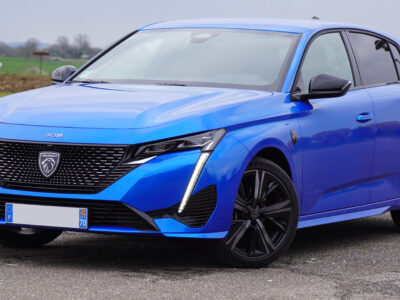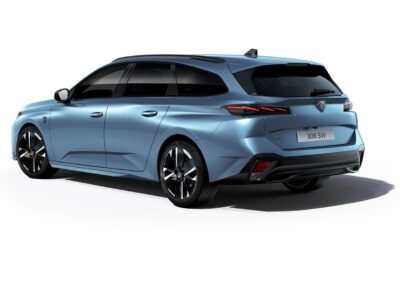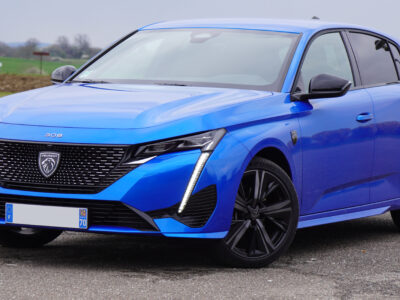
Does the Toyota Camry Have CVT Transmission?

When you're shopping for a Toyota Camry, one of the key considerations you might have is the transmission type. You might be wondering: Does the Toyota Camry come with a CVT (Continuously Variable Transmission)? Well, you're not alone—it's a popular question, and for good reason! The Toyota Camry is known for its reliability, comfort, and fuel efficiency, and the type of transmission it uses plays a big role in those attributes.
In this article, we'll break down everything you need to know about the Toyota Camry’s transmission options, specifically focusing on whether or not it has CVT. We'll cover what CVT is, how it works, and why it might (or might not) be the right choice for you. Let's dive in!
What is a CVT Transmission?
Before we answer the main question, it's important to understand what a CVT is. A Continuously Variable Transmission is a type of automatic transmission that can change seamlessly through a continuous range of gear ratios. Unlike traditional automatic transmissions, which use a set number of gears, a CVT doesn’t have fixed gears at all. Instead, it uses a belt and pulley system to adjust the transmission ratio as needed, offering smooth acceleration without the shift points found in conventional automatic transmissions.
How Does a CVT Work?
The magic of a CVT lies in its simplicity and adaptability. Traditional transmissions use a fixed set of gears (usually 4, 5, or 6) that "shift" as the vehicle accelerates. CVT, however, continuously adjusts the gear ratio based on the engine’s speed and load. This means there’s no noticeable gear-shifting, resulting in a smoother driving experience.
Think of it like a bicycle with infinite gears—when you pedal faster or harder, the bike shifts the gears to match your cadence. Similarly, a CVT in a car ensures that the engine stays in its most efficient power band.
Key Features of a CVT
- Seamless Shifting: No jerky gear changes. The ride feels smooth and uninterrupted.
- Fuel Efficiency: By keeping the engine at its optimal RPM (revolutions per minute), a CVT can improve fuel economy compared to traditional transmissions.
- Less Mechanical Stress: With fewer moving parts, a CVT is often less prone to the wear and tear that impacts traditional gearboxes.
Toyota Camry's Transmission Options
Now that we know what CVT is and how it works, let’s talk about the Toyota Camry. Toyota offers different transmission options across its Camry lineup, depending on the model and year. The standard Camry typically comes with a traditional 8-speed automatic transmission, while the hybrid variant uses a CVT.
Traditional Automatic vs. CVT
While many cars feature traditional automatic transmissions with a fixed number of gears, Toyota has opted for the CVT in the hybrid model. This is mainly due to the hybrid’s need for more efficient fuel management. Traditional automatic transmissions are more geared toward providing a “sportier” feel, while the CVT is engineered for smoothness and efficiency.
You may be interested in reading Toyota Camry Trim Levels 2014: A Detailed Guide to Choosing the Best
Toyota Camry Trim Levels 2014: A Detailed Guide to Choosing the BestToyota Camry Models with CVT
If you're looking to buy a Toyota Camry and want to know if the car features a CVT, the answer largely depends on the model. Here’s a quick breakdown:
- Toyota Camry Hybrid: All hybrid versions of the Toyota Camry come with a CVT transmission. The use of a CVT in the hybrid is crucial for maximizing fuel efficiency, which is a key selling point of the Camry Hybrid.
- Standard Camry: The regular gasoline-powered Camry does not use a CVT. Instead, it comes with an 8-speed automatic transmission, which offers its own set of advantages, including a more traditional driving experience and quicker gear shifts.
Toyota Camry Hybrid and CVT
The Toyota Camry Hybrid is the one you'll want to consider if you’re specifically looking for a car with CVT. With this variant, you get all the benefits of the CVT system, including improved fuel economy and a smoother driving experience. It’s perfect for those who want an eco-friendly vehicle without sacrificing comfort or performance.
Pros and Cons of CVT in the Toyota Camry
Like any technology, CVTs come with both advantages and disadvantages. Here's a quick rundown of what you can expect from a Camry with CVT:
Pros of CVT
- Fuel Efficiency: The CVT allows the engine to run at its most efficient RPM, leading to better fuel economy.
- Smooth Driving Experience: No noticeable gear shifts means you get a smoother ride.
- Quieter Ride: Because the engine can stay within its optimal range, the car tends to be quieter, especially on highways.
Cons of CVT
- Driving Feel: Some drivers miss the “shift” sensation they get with a traditional automatic. With a CVT, you may not get that same feeling of acceleration.
- Potential for Overheating: CVTs, especially early models, were known for overheating under heavy load or in high-performance driving.
- Reliability Concerns: While CVTs have become more reliable over the years, they have a reputation for being prone to failure, which can lead to expensive repairs.
Why Choose a Toyota Camry with CVT?
If you’re considering a Toyota Camry with CVT, you're likely someone who values comfort, smoothness, and efficiency. Here’s why it might be the right choice:
Fuel Efficiency and Comfort
The primary reason to choose a Camry Hybrid with CVT is for its impressive fuel efficiency. CVTs help the engine perform at its most optimal level, which means you get more miles per gallon—great for long commutes or road trips.
Driving Experience with CVT
If you prefer a more relaxed, less involved driving experience, the CVT in the Camry Hybrid could be a great fit. It’s smooth, quiet, and easy to drive, especially in stop-and-go traffic.
Common Issues with CVT in Toyota Camry
While CVTs are known for being more efficient, they can come with some challenges. Common issues include:
You may be interested in reading Toyota Camry Trim Levels 2014: A Detailed Guide to Choosing the Best
Toyota Camry Trim Levels 2014: A Detailed Guide to Choosing the Best Toyota Camry Trim Levels 2016: A Comprehensive Guide to All Your Options
Toyota Camry Trim Levels 2016: A Comprehensive Guide to All Your Options- Overheating: Some older CVT systems could overheat if pushed too hard.
- Delayed Acceleration: You may experience a slight delay when accelerating, as the transmission adjusts to the correct ratio.
- Maintenance Costs: Repairs for CVTs can be expensive, and maintenance may require special attention compared to traditional transmissions.
Maintenance and Repair Costs
While CVTs are generally low-maintenance, they do require some care. Fluid changes are vital, and they should be done according to the manufacturer’s schedule. If you're buying a used Camry Hybrid, it’s worth checking the transmission history to ensure the car has been properly maintained.
Conclusion
So, does the Toyota Camry have CVT transmission? The answer depends on the model you choose. If you're looking at the Toyota Camry Hybrid, then yes, it does feature a CVT. On the other hand, the regular gasoline-powered Camry uses a traditional 8-speed automatic transmission. The CVT in the hybrid version provides excellent fuel efficiency and a smooth driving experience, making it a great option for those who prioritize comfort and economy.
FAQs
1. Is the CVT in the Toyota Camry reliable?
Yes, the CVT in the Toyota Camry Hybrid is generally reliable, though it’s always important to follow regular maintenance schedules.
2. Does the CVT in the Camry cause a lag when accelerating?
Some drivers may experience a slight lag, but it’s usually minimal compared to other CVTs on the market.
3. Can you drive a Toyota Camry Hybrid with CVT in manual mode?
No, the Toyota Camry Hybrid with CVT does not feature a manual mode like some traditional automatic transmissions.
4. How does the CVT affect the driving experience?
The CVT provides a smoother ride with fewer gear shifts, making the drive less jerky, especially in stop-and-go traffic.
5. Are there any major drawbacks to the CVT in the Camry Hybrid?
The main drawbacks are potential overheating issues under heavy load and the higher repair costs associated with CVTs compared to traditional automatics.
 Toyota Camry Trim Levels 2014: A Detailed Guide to Choosing the Best
Toyota Camry Trim Levels 2014: A Detailed Guide to Choosing the Best Toyota Camry Trim Levels 2016: A Comprehensive Guide to All Your Options
Toyota Camry Trim Levels 2016: A Comprehensive Guide to All Your Options 2025 Toyota Camry Trim Levels Comparison: Which One Fits You?
2025 Toyota Camry Trim Levels Comparison: Which One Fits You?If you want to know other articles similar to Does the Toyota Camry Have CVT Transmission? you can visit the category Blog.
Leave a Reply






More content of your interest